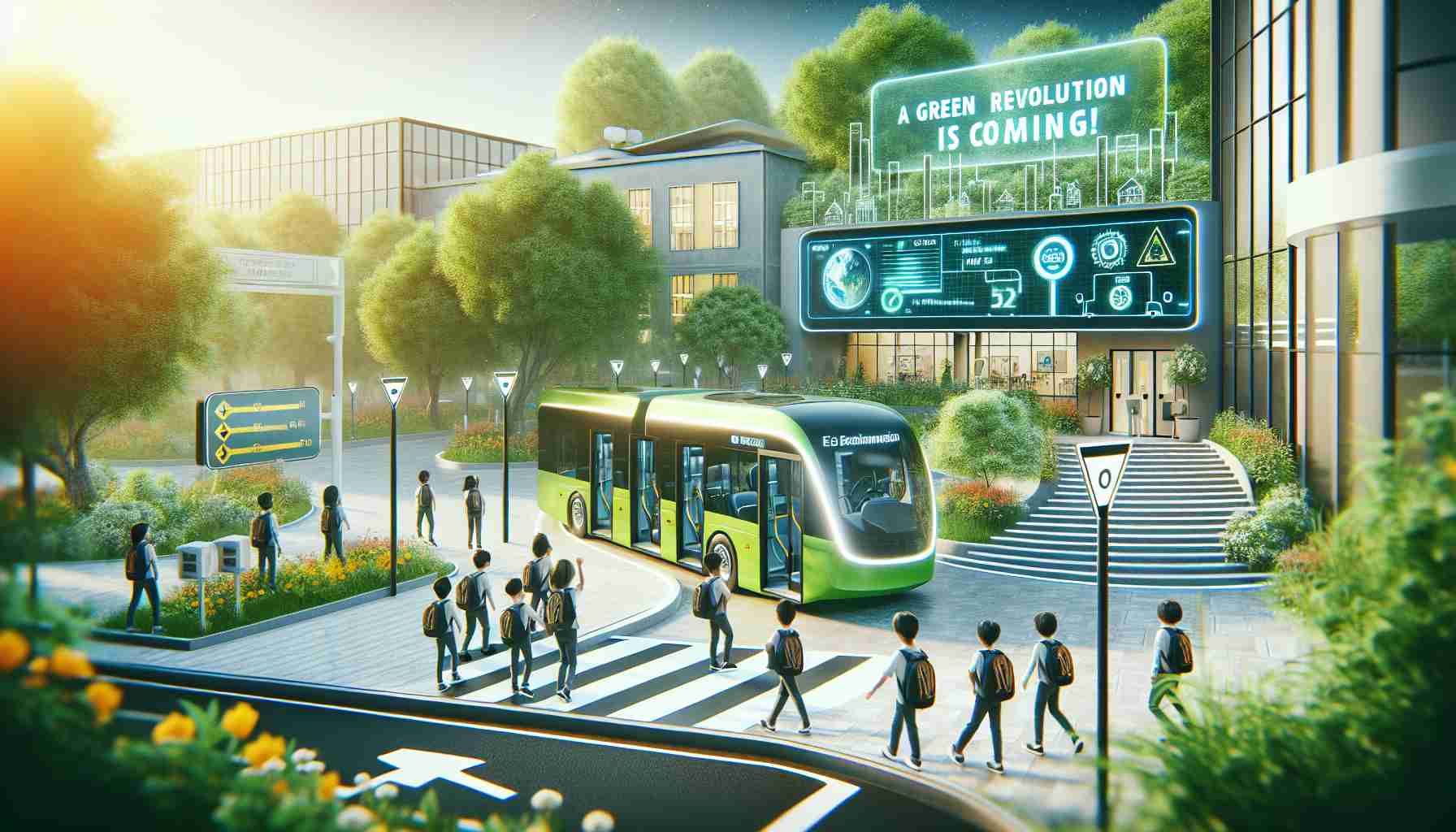
As part of a transformative initiative, Illinois school districts are gearing up to replace traditional combustion-engine buses with cutting-edge zero-emission electric buses. The Illinois State Board of Education (ISBE) has secured an impressive $19.9 million grant that will kickstart this exciting transition across nine districts.
This substantial funding, awarded by the U.S. Environmental Protection Agency’s Clean Heavy-Duty Vehicles Grant Program, aims to enhance air quality by phasing out harmful emissions from heavy-duty vehicles. With the implementation of this grant, over 70 outdated buses will be replaced, and essential charging stations will be installed to support the new technology.
In a press announcement, Governor JB Pritzker emphasized the state’s commitment to fostering a sustainable future for its students, asserting that this initiative will not only promote cleaner air but also contribute to healthier communities. Part of the grant will be allocated for the training of school staff, ensuring successful integration of the new electric buses.
The first districts to benefit from this groundbreaking project include prominent suburban areas such as Forest Park, Joliet Township, and Troy Community Consolidated, among others. Additionally, several other districts will receive dedicated funding for further green energy projects.
As Illinois takes significant strides toward a cleaner future, school districts across the state are encouraged to apply for additional funding under the 2024 Clean School Bus Rebate Program, with a submission deadline of January 9. This program opens up opportunities for even more districts to join the green revolution.
Illinois Leads the Charge: The Future of School Transportation with Electric Buses
Introduction
As part of a comprehensive sustainability effort, Illinois is leading the way in transforming school transportation. With the recent funding initiative, many school districts are set to replace traditional combustion-engine buses with modern zero-emission electric buses. This change not only addresses environmental concerns but also paves the way for healthier communities and more efficient school operations.
Overview of the Initiative
The Illinois State Board of Education (ISBE) has been awarded a remarkable $19.9 million grant from the U.S. Environmental Protection Agency’s Clean Heavy-Duty Vehicles Grant Program. This funding will facilitate the replacement of over 70 outdated buses across nine districts, helping to eliminate harmful emissions associated with traditional diesel buses. Additionally, the grant will support the installation of essential charging stations, marking a significant technological advancement in school transportation.
Key Features of the Electric Bus Transition
– Zero Emissions: Electric buses emit no exhaust fumes, significantly improving air quality around schools and communities.
– Enhanced Training Programs: School staff will receive specialized training to ensure the seamless integration of the new electric bus technology.
– Community Health Benefits: By reducing air pollution, the initiative contributes to the overall health and well-being of students and residents in these districts.
Notable School Districts Involved
Among the first districts to benefit from this project are:
– Forest Park
– Joliet Township
– Troy Community Consolidated
These districts not only set a precedent for others but also show a commitment to sustainability in education.
Future Opportunities for Funding
Districts across Illinois are encouraged to participate in the 2024 Clean School Bus Rebate Program, which opens the door for additional funding. The deadline for applications is January 9, 2024. This program aims to expand the reach of the electric bus initiative, allowing even more school districts to reduce their carbon footprint and invest in a sustainable future.
Pros and Cons of Electric Buses in Schools
Pros:
– Environmental Impact: Electric buses significantly lower greenhouse gas emissions.
– Cost Savings: Lower operational costs over time due to reduced fuel and maintenance expenses.
– Enhanced Student Safety: Quieter operation leads to a safer environment for students, especially around schools.
Cons:
– Initial Investment: The conversion to electric buses requires a substantial upfront investment.
– Charging Infrastructure: Establishing adequate charging stations can be a logistical challenge.
– Range Limitations: Electric buses may have a limited range compared to traditional buses, impacting longer routes.
Market Insights and Trends
The push for electric school buses is part of a larger trend toward electrification in public transportation. As states invest in cleaner technologies, the demand for electric buses is expected to rise. Reports indicate that the electric vehicle market is projected to grow substantially over the next decade, influenced by legislative support and increasing environmental awareness.
Conclusion
Illinois is setting a standard for other states by making significant investments in electric school buses. This initiative not only supports the state’s commitment to cleaner air but also showcases leadership in the quest for sustainable transportation solutions in education. As more districts prepare to join this green revolution, the impact on health, environment, and education will be profound.
For more information on the electric bus initiative and related programs, visit the Illinois State Board of Education.



